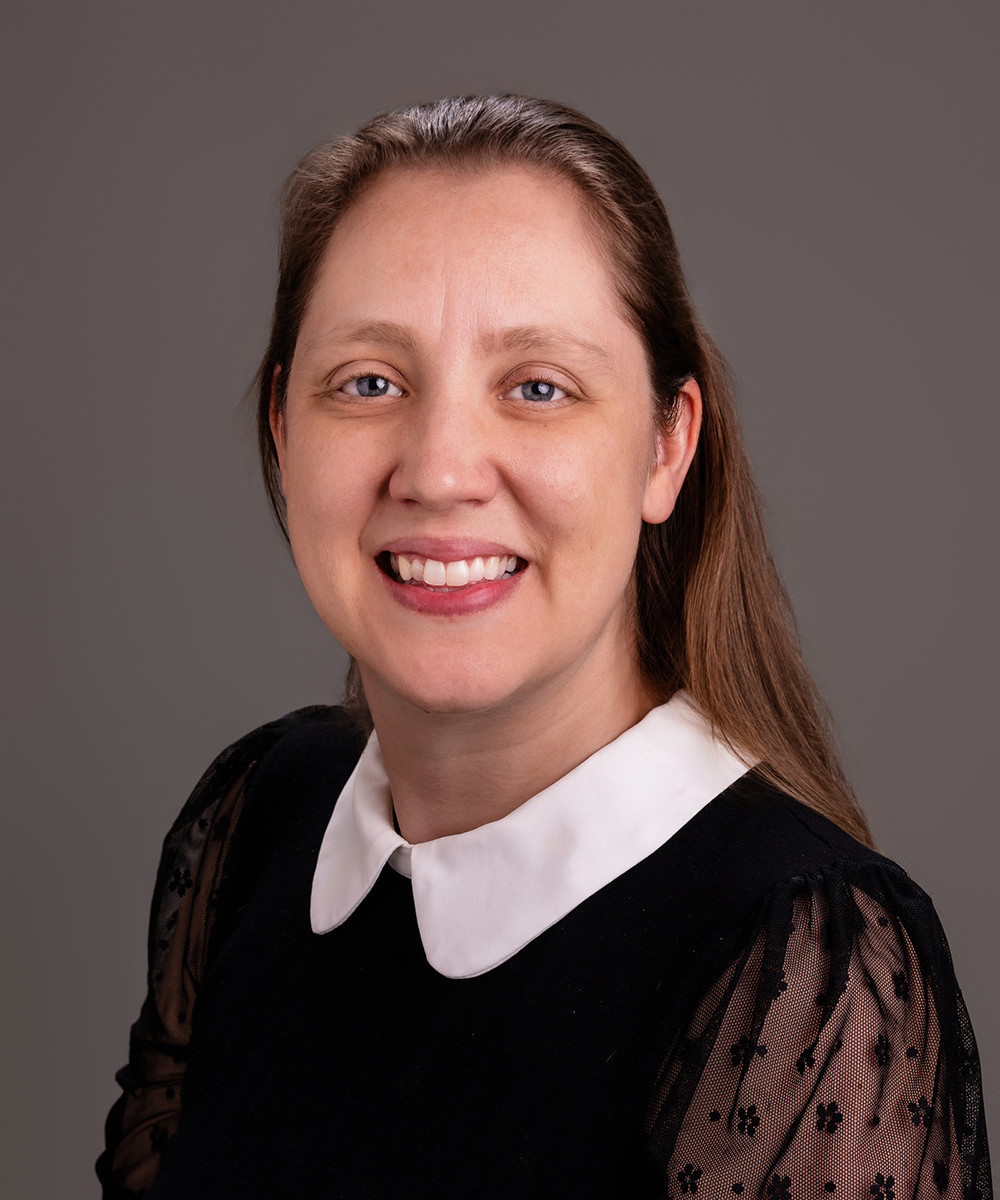Profile
Kathryn Moss, PhD, studies inherited peripheral neuropathies with the aim of accelerating therapeutic discovery by advancing knowledge of disease pathophysiology and identifying pathomechanisms. Charcot-Marie-Tooth disease (CMT) is the leading cause of inherited peripheral neuropathy, affecting one in every 2,500 people. Dr. Moss is currently focusing on CMT Type 1A (CMT1A) and Hereditary Neuropathy with Liability to Pressure Palsies (HNPP) because they account for more than half of all genetically defined CMT cases.
Remarkably, CMT1A and HNPP are caused by copy number variation of the same gene; CMT1A is caused by duplication of the Peripheral Myelin Protein 22 (PMP22) gene, and HNPP is caused by deletion of the PMP22 gene. And although CMT1A and HNPP dramatically impact patient quality of life and burden the health care system, there are currently no disease-modifying treatments available.
Dr. Moss utilizes advanced mouse and cellular models and sophisticated microscopy methods to dissect CMT1A and HNPP pathomechanisms and systems neuroscience to study pathophysiology. Her results will facilitate therapy development for CMT1A and HNPP by revealing novel approaches to rescue myelin deficits and informing when these strategies will be most effective.
Academic Information
Office
1030 Hitt Street
Roy Blunt NextGen Precision Health Building
Columbia, MO 65212
United States
Research Interests
- Neuromuscular disease
- Inherited Peripheral Neuropathy
- Charcot-Marie-Tooth Disease (CMT)
- Demyelination/Dysmyelination
- Neurodevelopment and Neurodegeneration
- Pathophysiology and Pathomechanisms
Areas of Expertise
- Cellular and Molecular Neuroscience
- Systems Neuroscience
- Confocal Microscopy and Image Analysis
- Transgenic Mouse Models
- Cell and Tissue Culture
Education & Training
Fellowship
2017 - 2024 Johns Hopkins University, Department of Neurology
2016 - 2017 Emory University, Department of Cell Biology
Post-Graduate School
2015 PhD, Emory University
2007 BS, University of Michigan
Awards & Honors
• 2023 Charcot-Marie-Tooth Association “40 Under 40” Award for Advancing CMT Research and/or Clinical Care
• 2023 Helen B. Taussig Young Investigator Award at the Johns Hopkins University 46th Annual Young Investigators’ Day
• 2023 Member of the American Neurological Association
• 2022 Full Member of the Sigma Xi Scientific Research Honor Society
• 2021-2026 NIH NINDS K22 Advanced Postdoctoral Career Transition Award to Promote Diversity in Neuroscience Research (1K22NS125057)
• 2021-2024 Johns Hopkins University Merkin Peripheral Neuropathy and Nerve Regeneration Center Senior Postdoctoral Grant
• 2019-2021 Maryland Stem Cell Research Fund Postdoctoral Fellowship
• 2018 Member of the Peripheral Nerve Society
• 2017-2018 Johns Hopkins University Provost’s Postdoctoral Diversity Fellowship Award
• 2012-2015 NIH NIMH Predoctoral NRSA Fellowship (1F31MH095266
• 2012 Member of the Society for Neuroscience
Publications
- Moss KR, Mi R, Kawaguchi R, Ehmsen JT, Shi Q, Vargas PI, Mukherjee-Clavin B, Lee G, Höke A (2024) hESC- and hiPSC-derived Schwann cells are molecularly comparable and functionally equivalent. iScience. 27(6): 109855. PMID: 38770143.
- Hildebrandt RP*, Moss KR*, Janusz-Kaminska A, Knudson L, Denes LT, Saxena T, Boggupalli DP, Li Z, Lin K, Bassell GJ, Wang ET (2023) Muscleblind-like proteins use modular domains to localize RNAs through kinesin transport and by docking to membranes. Nat Commun. 14(1): 3427. PMID: 37296096. (* Authors contributed equally)
- Moss KR, Johnson AE, Bopp TS, Yu AT, Perry K, Chung T, Höke A (2022) SARM1 knockout does not rescue neuromuscular phenotypes in a Charcot-Marie-Tooth disease Type 1A mouse model. J Peripher Nerv Syst. 27(1): 58-66. PMID: 35137510.
- Moss KR, Johnson AE, Bopp TS, Höke A (2021) New evidence for secondary axonal degeneration in demyelinating neuropathies. Neurosci Lett. 744: 135595. PMID: 33359733.
- Moss KR, Höke A (2020) Targeting the programmed axon degeneration pathway as a potential therapeutic for Charcot-Marie-Tooth disease. Brain Res. 1727: 146539. PMID: 31112584.


